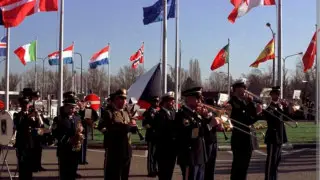
The head of the United Nations Relief and Works Agency for Palestine Refugees (UNRWA), Philippe Lazzarini, has raised alarm over Israel's reported decision to no longer approve UNRWA food convoys to the northern regions of Gaza. In a statement on the social media platform X, Lazzarini expressed outrage, saying, "This is outrageous and makes it intentional to obstruct lifesaving assistance during a man-made famine. These restrictions must be lifted."
The development comes amidst efforts by the Israel Defence Forces (IDF) to sideline UNRWA and explore alternative channels for delivering humanitarian aid to Palestinians. This move follows allegations by Israel that a dozen UNRWA staff members were involved in the devastating October 7 Hamas onslaught on Israel, and that approximately 1,500 staff had ties to terror groups.
Consequently, Israel has initiated collaboration with other organizations operating in Gaza, such as the UN World Food Programme, to provide aid to Palestinians instead of relying on UNRWA.
UNRWA, which provides aid and services to Palestinian refugees in Gaza and across the region, finds itself in a precarious situation since the agency's employees were linked to the deadly massacre. The agency's biggest donor, the United States, and several other countries temporarily suspended their funding, casting doubt on UNRWA's future operations. However, some nations, including Canada, Australia, and Sweden, have since restored their financial support.
The agency argues that it plays a crucial role in providing relief to Gazans, especially during the ongoing conflict with Hamas. Recent struggles in delivering aid to certain areas of the Gaza Strip have fueled heightened criticism of Israel's actions.
"By preventing UNRWA to fulfill its mandate in Gaza, the clock will tick faster towards famine & many more will die of hunger, dehydration lack of shelter," Lazzarini added, underscoring the grave consequences of the situation.
UNRWA was established in 1949 in the aftermath of the war surrounding the founding of Israel, when 700,000 Palestinians fled or were driven from their homes. The agency currently employs around 30,000 Palestinians to serve the civic and humanitarian needs of 5.9 million descendants of those refugees, residing in the Gaza Strip, West Bank, and vast camps in Jordan, Syria, and Lebanon. In Gaza, UNRWA is providing shelter for approximately one million people newly displaced by the ongoing conflict between Israel and Hamas, sparked by the October 7 massacre.













Copyright © 2025 Top Indian News
